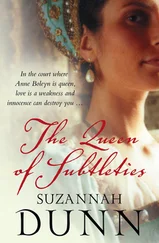Like an aunt, though, she’d seemed to him. A maiden aunt, spry and assiduously interested in him, with a no-nonsense voice and clothes of excellent quality but no flair. Somehow girlish but with no youthfulness. An eldest daughter, the dutiful one, no one’s favourite; well respected but not loved. No children of her own, and now past childbearing. But none of this, now, was the truth, he reminded himself. She was thirty-eight, he knew: just in time, was the hope. Hence the marriage. She was no longer a maiden aunt but a newlywed with a husband – her respectful nephew – who was eleven years her junior.

He didn’t mention the encounter in his letter home. It would sound ridiculous, unbelievable, and he didn’t want those back home to doubt him, didn’t want to add to the distance between them. His letters should be like whispers in their ears. If he told them that he’d spoken with the queen, they would – as he envisioned it – take a step back in surprise and confusion.
And so, instead, it was more of the same: the shocking weather, the unfresh food, the shops, the dogs. He’d been going to tell Francisco about there being a boy of his own age in the house, but had changed his mind. He’d been thinking of the little boy as a kind of friend, almost, for Francisco, before realising there was a risk – however ridiculous – that his own little lad would see the English child as a threat, as a potential competitor for his father’s affections.
Rafael wasn’t expecting letters in return: six weeks was the estimated delivery time to and from Seville. He’d be home before he could get any post. He’d probably be home before they got his missives, but he wrote just in case. There could be a delay, sea-journeys being as they were. Or sea-journeys being as they were, the worst could happen, and at least then they’d have word that he’d been thinking of them during his time away. At least Francisco would have something of him.
Francisco’s preoccupation in the months before Rafael’s departure had been death. He’d discovered it. Some of their conversations on the subject had been wonderfully weird, Francisco once excitedly considering, ‘What shall I have written on my grave, Daddy? What would you like on yours?’ Mostly, though, of course, they’d been distressing: When you die, Daddy, and Mummy dies, I’ll have no one left to love . In that instance, Rafael had tried to explain that it often wasn’t quite like that. ‘You’ll be old by then,’ he’d dared to hope, ‘and you’ll have your own wife,’ wondering with a pang if that would indeed be true, ‘and your own children.’
Rafael’s fear was persistent: that the worst might’ve already happened to his son, but that he didn’t yet know it. A choking on a grape. The yanking over of a cauldron of boiling laundry. And Rafael not there to hold him, to try to ease his terror and his pain, not there to wash him before they wrapped him up and parcelled him away for ever. He couldn’t yet know if something had happened. For six whole weeks, he wouldn’t know. For six whole weeks he’d carry on as usual, eating and sleeping and sailing on the river, mindless, oblivious and unforgivable.
The household staff made much of looking busy, put upon, stretched – more, Rafael guessed, than was warranted by the actual workload. Mostly men, they were, and mostly liveried, which didn’t help him learn to distinguish them from one another: grooms, watchmen, footmen and clerks. Rafael’s family was probably no smaller but served more than adequately by a handful of staff who seemed to have all the time in the world. Those first few days in London, he longed to encounter the insouciance of his mother’s maid, Maria, or the sleepiness of Vicente, the stablehand. Cook was the exception, back home, but that was just Cook: no one gave his rattiness any credence, and Rafael began to think even of him with affection.
One of the Kitson grooms limped: that one Rafael recognised. One of Mr Kitson’s clerks was blind in one eye. One of the lads who served at dinner was a redhead. As for the Kitsons themselves, Rafael tried to get an idea of who they all were. They were easy to spot, sharing a certain foxy-faced look. The family was well endowed with girls: a pack of them, of all ages, and all, it seemed, assigned to looking after one another, so that one of them was almost always rounding on another with exaggerated patience or haughtiness. Sometimes, inevitably, their ill-fitting poise would slip. Once, he glimpsed one of the girls rushing up the central staircase, feet jabbing at the treads, her skirt held high, her scarlet-clad ankles and calves revealed. Another time, he saw from his window a Kitson girl swipe viciously at a smaller one who dodged, laughed in the face of her companion’s fury and skipped away. There were only two Kitson boys. One was nine or ten years old and walked with the aid of two sticks. The other was several years older, with a long face and big ears and a permanent stare into the middle-distance. Sometimes he’d cover those ears and shut his unfocused eyes and rock. He kept close to the lady Rafael knew to be Mrs Kitson, or to a sister who appeared to be the eldest of the pack. The girl was old enough to have dropped the airs and graces affected by her sisters and sometimes, from across the Hall, she gave Rafael a timid smile, for which he was grateful.
He didn’t need the presence of the Kitson boys to remind him to be thankful for Francisco’s perfection. Back at home, he’d sometimes found it funny: it’d seemed too much – perhaps that was what it was – so that sometimes, seeing it, he’d feel a laugh welling up. Incredulity, he supposed it was, but it felt like a laugh. So precarious, though, it seemed now, that perfection.
There were three other young men in the household who were clearly well-to-do, not staff, but didn’t share the Kitson resemblance and, anyway, were too keen, too polite and too watchful of themselves to be members of the immediate family. At dinner, they served the high table. Rafael couldn’t fathom who they were or what the arrangement with the Kitsons might be.
At the palace, a Spanish lad had got himself into trouble and had had his earlobe bitten off in a fight with an Englishman, according to Antonio. ‘Clean off,’ were Antonio’s words.
Rafael doubted that there’d been much cleanliness about it. ‘A fight?’
Antonio looked expressionlessly at him. ‘There are a lot of fights,’ he said.
But that was at the palace, where Spanish and English were shut in side by side. In the city, Rafael was beginning to feel more confident, braving some local exploration. To and from the river, he began to deviate just a little from his route: down Lombard Street and then Abchurch Lane, perhaps, or St Nicholas Lane, instead of St Swithins Lane. Or down Walbrooke into Dowgate. Up St Laurence Pountney Hill. The English might not like foreigners but there were foreigners here nevertheless, running their businesses. Word had spread among Rafael’s fellow countrymen of French button makers, Dutch shoemakers, an Italian hatmaker, a Genovese glove-perfumer. These people were managing to live their lives here unmolested. Still, Rafael walked fast with his head down, his hat low over his face, avoiding streets from which tavern noise came, turning from streets in which he’d have to balance on planks. These precautions afforded him a limited view of London, of course. He saw few sundials – hardly surprising, given the climate – and none was innovative: nothing more unusual than a decliner. He noticed the forlorn remains of shrines: stripped empty, often stuffed with rubbish. Something else that struck him – head down, listening more than he dared look around – was how much the English talked: they never seemed to stop; they even talked to the dogs they took around on leashes, even to cats on top of walls. For all this talk, there was never any flow to it that he could hear; hard and sharp, the words sounded to him.
Читать дальше













